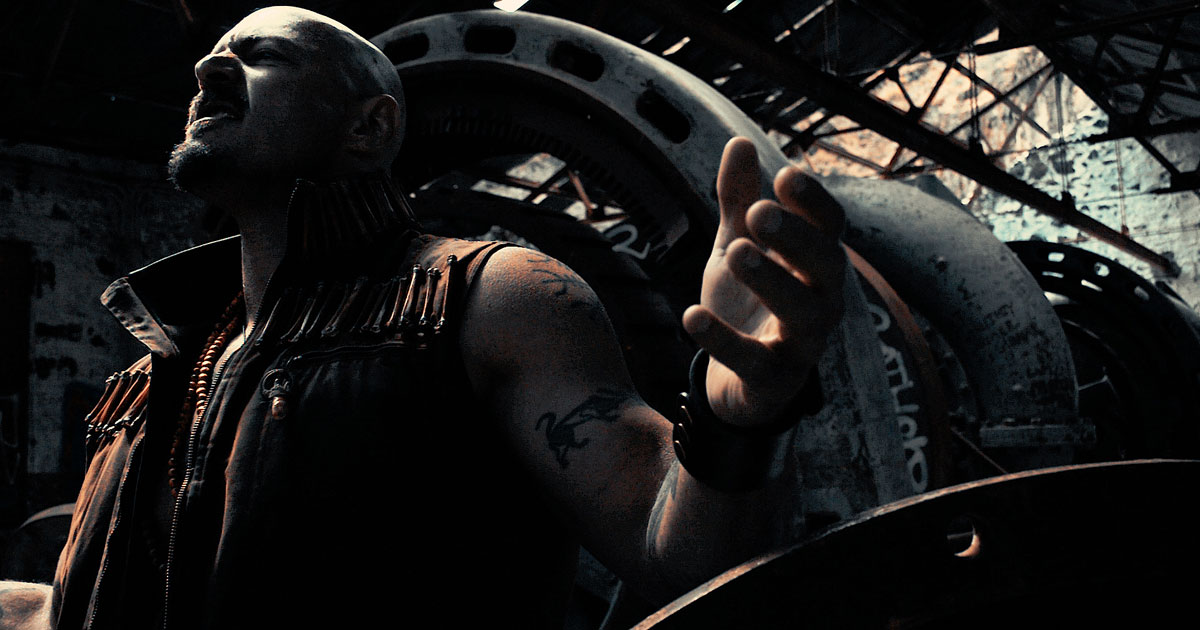“This Is Your Captain Speaking” – In Defense of Ego

It was the Marine Corps’ birthday. I drove out to have drinks with some guys who had just wrapped up a day at the range. My salty friend “Buck” gave a buoyant but unapologetic reading of Commandant John A. Lejeune’s 1921 memorandum to the entire restaurant. I’ve never been in the military, so I looked on like a buzzed and confused anthropologist. Sometime after the snipers had punished each other with inventively sadistic tequila shots, Buck challenged the table.
“Can anyone tell me a time when “ego” is a good thing?”
Buck is both mischievously and purposefully argumentative. He is also a genuinely decent human being and he’s surprisingly open-minded for a dude who you can barely picture without a lump of chaw in his lower lip. He went around the table, patiently hearing nods and objections.
I argued that, in the Freudian sense, the “Ego” is the rational aspect of the conscious mind. It is your Ego that makes conscious decisions and chooses to regulate your behaviors. It’s responsible for both positive and negative choices.
If you are self-aware and acting consciously, your Ego is giving the orders. The Ego is the captain of your ship. If your Ego is “bad,” either your captain is making bad decisions, or he’s not running a tight ship. He’s allowing the primal, semi and sub-conscious desires of the “Id” take the helm.
“Jack, I knew you’d come up with some technicality.”
Freud actually used the German word “Ich” — meaning simply “I” — and early translators latinized “Ich” as “Ego,” which means approximately “I, myself” in Latin. The Ego is the only “Self” that you can fully know. Your Ego is…YOU.
Buck was using Ego as many martial arts instructors do: as a synonym for arrogance, hubris, narcissism, or “egotism.”
Both narcissism and egotism suggest a passionate desire to maintain and enhance overestimated views of oneself. This “bad,” “unhealthy,” or “unproductive” ego protects delusions of grandeur at the expense of accurate introspection and growth. It’s a floundering and vulnerable regime that relies on patriotic songs instead of learning from its competitors.
If, in the words of Kipling, you “trust yourself when all men doubt you, but make allowance for their doubting too” — then in this sense you have a healthy ego which is confident but also open to criticism and the possibility of acknowledging error or room for improvement. Not all criticism from everywhere — that’s insanity — but valid criticism from experienced, knowledgeable or trusted sources. And perhaps the occasional gibe from the peanut gallery that rings true.
What men generally mean when they criticize Ego is that your confidence is unbalanced by humility. The word “Ego” has become a conversational shorthand for “lack of humility” and “delusions of grandeur.” To point out that it means more than that according to the Austrian who popularized it (in translation) may seem a touch pedantic. But it doesn’t bother me because I’m a stickler or a Freudian. It bothers me because it drifts linguistically toward self-denial and mixes with a spiritual self-denial that usually wafts in from eastern philosophy and which generally smells a lot like patchouli and marijuana.
Westerners have long been possessed by a certain neophilic orientalism that regards everything from the east as being more authentic or spiritual or “deep” — almost solely by virtue of it being exotic and non-western. Slap some Sanskrit on your strip mall yoga studio and suddenly you have more wisdom to offer than all of the Greeks and Romans combined.
A wide variety of (mainly) eastern schools of thought seem to equate enlightenment with the acceptance of the idea that the self is an illusion. Each of their varied adherents will find some detail in this to quibble with or say that I am misrepresenting something. That’s fine.
I’m willing to accept the notion that the self — the Ego, even — is a construction of the brain. Some kind of survival mechanism that helps us make sense of the world. The Self — or Ego — is, in some biological sense, an “illusion.” But only insofar as everything else is, too.
We process the world through our senses. Our eyes perceive something as being a certain color because it reflects a certain wavelength of light, based on various physical properties. If we can’t perceive color, is it real? Is everything the same color? Is color even a relevant property of a thing?
Totally deep, right?
Like, “woah…”
I can accept the idea that the only Self that I know is in some sense an illusion — that my Ego is a hallucination of my brain — but practically speaking, I still have to interact with the world as a differentiated individual. So I’m not sure what utility there is in focusing on that idea.
My Ego, — myself and I — work together to create and recreate this thing that we are, over and over again. To rewrite its mission and its script, to find and elaborate on its themes and make it a coherent and compelling work of art that stands on its own.
Until it doesn’t. As a carbon-based life form, yes, I’m made of the same stuff as other living things. I will return to the earth and the darkness, and — broadly speaking — the universe, whether I like it or not. But I’m in no particular hurry. I’m connected to all things and I am part of some big picture, but I am also differentiated and singular. I am not a tree or a woodpecker. I am a man. More than a man, I am me. And this consciousness, this sense of self, this Ego — is part of my nature.
A tree wants — insofar as it is able to want — to be the biggest and fullest tree it can be. It is shaped and stifled by environmental factors that promote or limit its growth. It may be surrounded by rocks and attacked by insects and parasites, it may weather storms and droughts, but it is a living thing struggling to live and it will do everything it can to become the most magnificent manifestation of its potential that it can.
Of course, there is no part of your brain called “Ego.” Freud’s structural model of the mind is just that — a model for thinking about thinking. It is an intellectual tool — a technology. As with all tools, its value is tied to its utility. Philosophies and religions are all technologies.
Focusing on the inevitable dissolution of my Self or Ego may be appropriate in hospice, but I question its utility for living life.
If you choose a path, make sure it is taking you somewhere that you want to go. Are you seeking your own truth, or some unknowable objective truth about the mind and the meaning of life, or are you seeking a truth to submit to? Are you looking for something useful or are you looking for something or someone to follow? Are you looking for a set of rules or some comfort?
While I struggle to see how useful becoming one with the universe and focusing on the illusory nature of reality is useful to the individual in a practical sense, I so see why someone in a position of power would promote it. The erasure of identity lends itself to a broad —and today, globalist — collectivism. It taps into our Dionysian desire to disappear into the darkness of collective (un)consciousness. To speak with the same voice and think with the same mind.
Like Littlefinger, “Sometimes when I try to understand a person’s motives I play a little game. I assume the worst. What’s the worst reason they could possibly have for saying what they say and doing what they do?”
If you’re not real and not important, if your goal is disappearance, then why does anything matter? It seems like a pretty good way to get people to accept simpler lives, and to be happier with less opportunity. It seems like a pretty good way to control people and convince them to accept the fate you’ve chosen for them. It seems like a good way to get people to accept your authority. Why not? What difference does it make?
It makes one wonder if these leaders really practice, in their hearts, the same religion they proscribe to their people. I tend to doubt it. Why would you assume that the leader who wants you to kill your Ego is altruistic?
I’m not saying that Gautama Buddha Manson-family mind-fucked generations of millions, but I’m not saying he didn’t.
“Say my name, say my name…”
It is possible that…the man who wants you to forget your Ego may also want you to remember his own…
Maybe you’re ok with that. Maybe that’s what you want — to fall into a thing and give it control and let it shape you. To become one of the king’s men and ride one of his horses.
Maybe it’s not. Either way, that’s none of my business.
That’s for your Ego to decide.
In Freud’s model, the Ego never really goes away — it simply chooses to repress thoughts and urges that do not conform to its aspirational “Ego Ideal” or which have been deemed unacceptable within its social environment.
I haven’t read Ayn Rand’s Anthem since I was a teenager, but kicking this problem around took me back to the communist dystopia she created, wherein the characters were limited to plural pronouns, like “we,” “our” and “they,” and men had names like “Equality 7-2521.” The protagonist, rebels and eventually discovers a book from “The Unmentionable Times.” In that book, he encounters, for the first time in his life, the word “I.” Recognizing his individuality, he decides to give himself the name Prometheus.
At first, man was enslaved by the gods. But he broke their chains. Then he was enslaved by the kings. But he broke their chains. He was enslaved by his birth, by his kin, by his race. But he broke their chains. He declared to all his brothers that a man has rights which neither god nor king nor other men can take away from him, no matter what their number, for his is the right of man, and there is no right on earth above this right. And he stood on the threshold of the freedom for which the blood of the centuries behind him had been spilled.
But then he gave up all he had won, and fell lower than his savage beginning.
What brought it to pass? What disaster took their reason away from men? What whip lashed them to their knees in shame and submission? The worship of the word “We.”
When men accepted that worship, the structure of centuries collapsed about them, the structure whose every beam had come from the thought of some one man, each in his day down the ages, from the depth of some one spirit, such spirit as existed but for its own sake. Those men who survived those eager to obey, eager to live for one another, since they had nothing else to vindicate them–those men could neither carry on, nor preserve what they had received. Thus did all thought, all science, all wisdom perish on earth.
What Rand suggests here is that the desire to realize one’s individual potential and to be recognized for it actually drives competition, discovery and innovation. The daring men who discovered continents and planted flags on the North and South poles all wanted to make names for themselves. They were competing to be the known and remembered as the first and the best. This competition to be known and esteemed has driven invention and cured diseases. Before the art world lurched toward a dreary and hypocritical communism, most of the great paintings were signed. Rembrandt and Da Vinci call out from the grave, saying “recognize that I did this!” You know that Dali and Picasso wanted you to remember their names! They would have told you themselves! What man would break his own bones shouldering 800, 900, or 1000 pounds if no one would ever know he did it?
Keep your quizzical kōans and subservient mantras and send me men, send me EGOs who would die to get their names up on the board of life! I want a world where men still want to DO DEEDS and be remembered for them.
Cattle die, and kinsmen die,
And so one dies one’s self;
But a noble name will never die,
If good renown one gets.
Cattle die, and kinsmen die,
And so one dies one’s self;
One thing now that never dies,
The fame of a dead man’s deeds.
— Hávamál
It’s a manly concern — to want to piss on trees and wipe your dick on the drapes. To inseminate the world. To leave evidence of your existence. To claim mountains and build monuments. To become Ozymandias, booming from the grave: “Look upon my works, ye mighty and despair!”
The sands of time may wipe away all of these works, and someday the sun will swallow the Earth, but if I’m going to be here, I’m going to be here and I’m going to keep trying to write my Ego’s name on the world. I’m not here merely for the experience. That’s a participation trophy. If you’re into that, that’s cute, but I’m here to make a mark.
As Rand observed, it is this Ego — this Ego in competition with other Egos — that in many cases pushes us to invent and overcome and break the shackles of our minds and bodies. The Ego motivates. It is this Ego, this I, this ME who says — who insists — “I AM somebody,” “I AM worth something,” “I have an idea,” “I want to be heard,” “I want to be free.”
That’s when Ego is a good thing.
And here, over the portals of my fort, I shall cut in the stone the word which is to be my beacon and my banner. The word which will not die, should we all perish in battle. The word which can never die on this earth, for it is the heart of it and the meaning and the glory.
The sacred word:
EGO
— Ayn Rand, Anthem
[/vc_column_text][/vc_column][/vc_row][vc_row][vc_column][vc_facebook][/vc_column][/vc_row]




